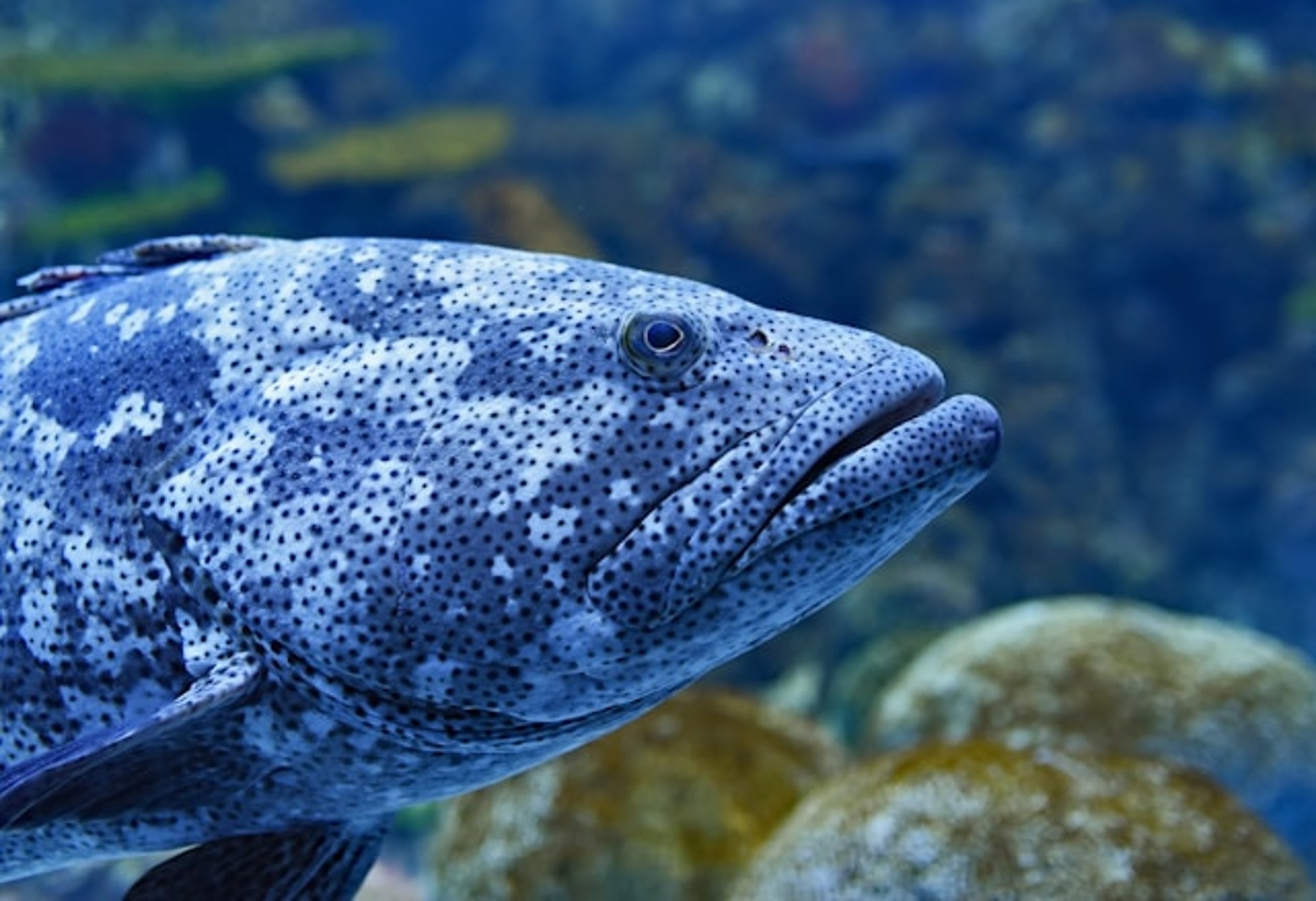7 Benefits of Marine Collagen (+ FAQs)
Thinking of trying marine collagen? Learn how it supports your body from the inside out, with clean ingredients and fast absorption.
LIFESTYLE
7/1/20256 min read

7 Marine Collagen Benefits That Might Surprise You
Thinking of trying marine collagen? Learn how it supports your body from the inside out, with clean ingredients and fast absorption.
Collagen might not be the trendiest word in your skincare or supplement stash, but it’s quietly been stealing the spotlight for good reason. And if you’ve stumbled upon marine collagen and wondered what the fuss is about, you’re not alone.
Marine collagen, derived from fish skin and scales, is quickly becoming the go-to for people who want a clean, bioavailable, and eco-conscious way to support their skin, joints, gut, and more. And spoiler: it’s not just another beauty trend. It actually works.
Let’s dive into the seven biggest benefits of marine collagen and why it might just become your next must-have.
Disclaimer: This content is for informational purposes only and is not a substitute for professional medical advice, diagnosis, or treatment. Always consult a qualified healthcare provider before starting any new supplement, including marine collagen.
1. Glowing Skin From the Inside Out
Let’s start with the obvious: skin.
Marine collagen has a unique amino acid profile that includes glycine, proline, and hydroxyproline. These three work together to support your skin’s structure, elasticity, and hydration. Translation? Fewer fine lines, a smoother surface, and that elusive glow we’re all chasing.
A growing number of studies suggest that regular intake of collagen peptides, especially marine-sourced, can visibly reduce signs of aging. People who take marine collagen often report firmer skin and improved texture within weeks. This is largely because marine collagen is absorbed more efficiently than other types, giving your skin cells the tools they need to build and repair faster.
So, if you’ve been relying solely on creams and serums, it might be time to give your skincare routine a little edible upgrade.
2. Healthier Hair and Stronger Nails
You know those days when your hairbrush looks like it lost a fight with your scalp?
Or when your nails peel like thin paper?
Marine collagen could help.
Because it supports keratin production, which is the protein that makes up your hair and nails, marine collagen can help restore strength and shine. It also improves blood circulation to the scalp, which means your hair follicles get more nutrients, more oxygen, and more of a chance to thrive.
When used regularly, marine collagen supplementation can help reduce breakage, improve texture, and even promote new growth. So if you’re trying to grow out your hair or kick brittle nails to the curb, this could be a great addition to your daily routine.
3. Improved Joint and Bone Health
Let’s be honest: creaky knees and stiff shoulders are not just an “over-40” thing anymore. No matter your routine — lifting weights, running errands, or just trying to sit comfortably at your desk — joint pain sneaks up fast when you hit 40 or even before.
Marine collagen helps by delivering key amino acids that support cartilage regeneration and reduce inflammation. Since collagen naturally declines as we age, supplementing it can help maintain the cushioning between joints and keep you moving smoothly.
In fact, some users with mild arthritis or post-workout soreness say they feel more flexible and less stiff within a few weeks of taking marine collagen. And because it’s high in Type I collagen, which also supports bone density, it’s great for long-term skeletal health too.
4. Gut Health and Digestive Support
Here’s a benefit that often flies under the radar: marine collagen is great for your gut.
Your digestive tract is lined with tissue that’s rich in collagen. When that tissue becomes damaged, inflamed, or thinned out (hello, leaky gut), it can lead to everything from bloating and discomfort to more serious issues like nutrient malabsorption.
Marine collagen helps reinforce the gut lining, making it stronger and more resilient. This can be especially helpful for people with IBS, food sensitivities, or chronic digestive issues. By strengthening that barrier and calming inflammation, you give your gut a better shot at doing its job without all the drama.
5. Supports Muscle Repair and Recovery
Marine collagen isn’t just a beauty supplement. If you’re into fitness or lead an active lifestyle, it might help your muscles recover faster too.
Glycine and arginine, two major amino acids in marine collagen, are essential for muscle repair and growth. They also help regulate inflammation, which is critical after an intense workout or long hike. Some athletes even say collagen helps with endurance, since it supports tendons and ligaments just as much as it helps muscles.
And no, you don’t need to be a bodybuilder to benefit. Even people dealing with age-related muscle loss or general fatigue might notice better energy and strength after consistent use.
6. Better Sleep and Mood Balance
This one surprises a lot of people, but it makes perfect sense.
Marine collagen is rich in glycine, which is known to support healthy sleep patterns and nervous system balance. Glycine acts as a neurotransmitter that promotes calmness, reduces anxiety, and helps regulate your body’s internal clock.
If you tend to toss and turn or wake up feeling groggy, adding marine collagen to your nighttime routine might help you relax and stay asleep longer. It doesn’t knock you out like melatonin. It works more gently, calming your mind and lowering your core body temperature, which helps you fall into deeper stages of sleep.
Bonus: Better sleep equals better skin, mood, focus, and overall health.
7. It’s Clean, Sustainable, and Highly Bioavailable
One of the top reasons people switch to marine collagen? It’s one of the cleanest options out there.
Marine collagen is typically made from wild-caught fish skin and scales, which are byproducts of the seafood industry. That means less waste and a lower environmental impact. And because it doesn’t come from cows or pigs, it’s suitable for pescatarians and people who avoid land-based animal products.
But perhaps even more important than where it comes from is how your body uses it. Marine collagen has a smaller peptide size compared to bovine or porcine collagen, which makes it easier to absorb. In other words, your body can put it to work faster and more efficiently.
For people with sensitive stomachs or autoimmune issues, this can be a game-changer.
FAQs About Marine Collagen
What is marine collagen?
Marine collagen is a type of collagen protein that comes from fish, especially the skin and scales. It’s usually hydrolyzed, meaning it’s broken down into smaller peptides for easier absorption. It’s most often Type I collagen, which is the main type found in your skin, bones, and connective tissues.
Is marine collagen low histamine?
Yes, hydrolyzed marine collagen is generally considered low histamine. However, if you have severe histamine intolerance, it’s best to check with your healthcare provider and look for brands that specifically test for histamine levels.
Which is better: marine collagen or collagen peptides?
Collagen peptides is a general term that refers to hydrolyzed collagen, regardless of the source. Marine collagen peptides are just one type. If your goal is better skin and gut health, marine collagen is often preferred due to its smaller peptide size and higher Type I content. But “better” depends on your specific health goals and dietary preferences.
Is marine collagen better than bovine collagen?
It depends. Marine collagen is absorbed faster, contains mostly Type I collagen, and is great for skin, bones, and gut health. Bovine collagen contains both Type I and Type III, which supports skin and connective tissue, so it may be better for joint health. People who are pescatarian or have dietary restrictions often prefer marine collagen.
Can marine collagen cause cancer?
There is no evidence that marine collagen causes cancer. In fact, some studies suggest that collagen peptides may support healthy cell regeneration and reduce inflammation. As with any supplement, it’s important to choose a high-quality, third-party tested brand and consult your doctor if you have any underlying health conditions.
Who should not take marine collagen?
If you’re allergic to fish, you should avoid marine collagen. People with chronic kidney disease or those on protein-restricted diets should also consult a doctor before taking any collagen supplement. And if you're pregnant or breastfeeding, talk to a healthcare provider first.
Can you take bovine and marine collagen together?
Yes, you can. In fact, combining different collagen types (I, II, III) can be beneficial, depending on your goals. Just be mindful of the total protein intake and how your body responds. Many people mix marine collagen for skin and gut health with bovine collagen for joints and flexibility.
Can you take marine collagen and omega-3 together?
Absolutely. These two actually complement each other well. Marine collagen helps build structure in your body, while omega-3 supports cellular health and reduces inflammation. Taking them together may support skin hydration, joint health, and brain function. Just make sure both supplements are high-quality and don’t come with unnecessary additives.
Final Thoughts
Marine collagen isn’t just a passing trend. It’s a powerful, versatile supplement that supports your body from the inside out. Whether you’re looking to glow up your skin, support your joints, calm your gut, or just feel better overall, marine collagen offers a clean and effective way to do it.
And the best part? It’s easy to add to your routine. Stir it into your morning coffee, blend it into smoothies, or just mix it with water. A scoop a day could help you feel (and look) like your best self in no time.
Just be sure to choose a reputable, sustainably sourced brand with minimal ingredients. Your body deserves the good stuff.
Explore
Welcome to Stay Curious – the blog where questions never get old and answers are always a little bit unexpected. Here, we challenge the status quo, dig into the weird and wonderful, and offer insights that might just make you think, “Why didn’t I know this sooner?”
From quirky facts to deep dives into the everyday mysteries of life, we’re all about satisfying that itch for knowledge you didn’t even know you had.
So, go ahead—stay curious. We promise it’ll be worth your while. Or, you know, not.
Contribute
Learn
ask.staycurious@gmail.com
© 2025. All rights reserved.
We welcome guest posts on business, tech, travel, finance, lifestyle, career, relocation, and home improvement. Submissions must be original, unpublished (online), at least 800 words, and written in English.
Ready to contribute? Contact us with your ideas!
